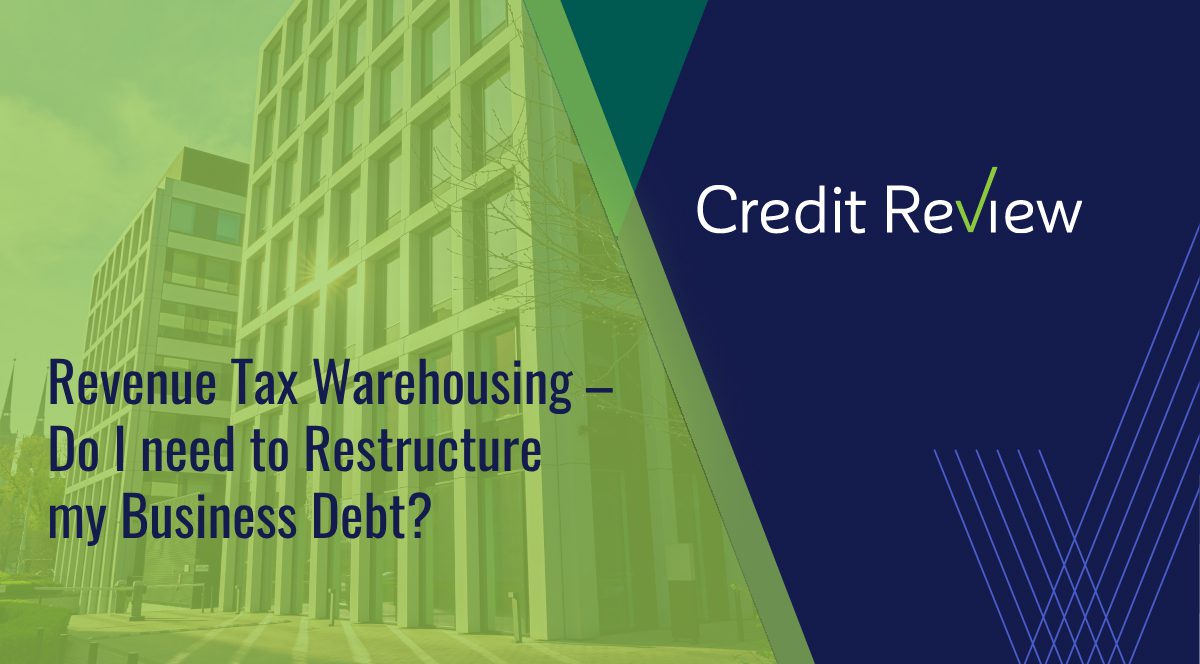Revenue Tax Warehousing – Do I need to Restructure my Business Debt?

Good news for the SME businesses who incurred pandemic related tax debts and utilised the Revenue tax debt warehousing scheme, with Minister McGrath’s recent announcement of increased repayment flexibility and 0% interest rates for businesses who agree a phased repayment arrangement by 1st May 2024.
Now may be the time to review your overall debt structure to ensure your business remains viable, particularly in light of recent interest rate hikes that have increased the cost of debt.
Reaching agreement with Revenue will impact cash flows, and it may be necessary to consider your repayment capacity and put in place changes or restructures to ensure all payments can be met to Revenue, banks, landlords, trade creditors and suppliers.
Maintaining healthy cash reserves and managing debt responsibly are key to business survival in challenging times. Some general steps and considerations you might want to keep in mind include:
- Budgeting and Financial Planning: Develop a realistic budget to manage your finances effectively. This involves cutting unnecessary expenses, prioritising debt repayment, and building an emergency fund to avoid future financial crises.
- Understand your income, expenses, and all outstanding repayments, especially debt
- Work with your creditors to explore different repayment options so that your business does not run out of cash – the single most common cause of business failure. If needs be propose a sustainable debt restructuring plan that you believe you can realistically adhere to.
Remember that each business’s financial situation is unique, and it’s crucial to tailor any debt restructuring plan to your specific needs. Seeking professional advice is highly recommended to ensure that you make informed decisions based on your financial circumstances.
What if my bank refuses to restructure my debt?
Credit Review can help. Set up by the Minister for Finance in 2010, Credit Review is an independent office with a simple mission – to assist SMEs and Farms, which are viable or potentially viable, to get access to the bank finance they need for their businesses.
As well as reviewing bank declines on new credit, Credit Review also reviews changes to existing facilities– where they are being restructured, reduced or even withdrawn.
So, if you seek to change the repayments on your existing debt – e.g. to extend the term of a business loan, or amalgamate short term debt with longer term – and you cannot agree restructure terms with your Bank, you can appeal to Credit Review and their team of independent expert lenders who can help.
Or if your bank proposes a change – for example to reduce your overdraft limit – and you believe you can sustain the existing level, you can appeal to Credit Review, where you will get an independent view on what is most appropriate for your business.
Credit Review accepts applications from businesses that have had credit facilities of up to €3 million refused, reduced, restructured/refinanced or withdrawn by AIB, Bank of Ireland, and PTSB.
For more information on Credit Review’s independent appeals process and information services, visit www.creditreview.ie or call the helpline on 0818 211789 and talk to an expert lender so that you are fully informed on bank credit issues relevant to your business.
Related Posts
Struggling to Secure Credit Finance for Your Commercial Vehicle?
Are you a commercial fleet operator facing challenges in securing the credit finance you need to keep your business moving? We understand the financial hurdles that need to be...
Having difficulties securing credit to expand your hotel or restaurant?
In the current economic landscape, hoteliers and restaurant owners can struggle to access the funds needed for growth. A detailed and compelling business plan highlighting your...



